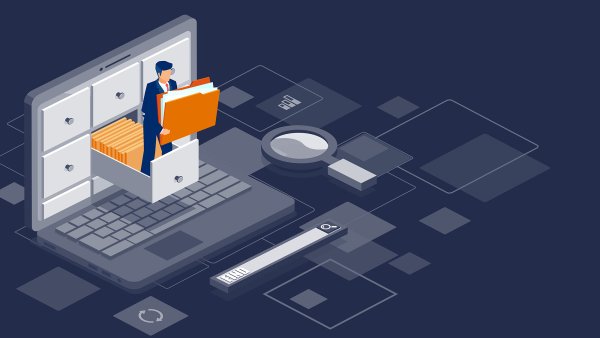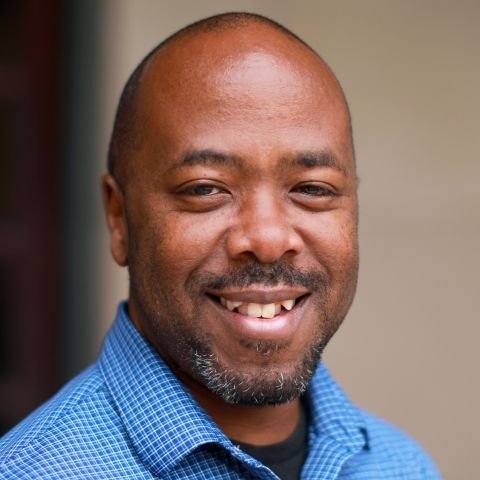
In an era when voters are often asked to choose candidates or engage with elected officials without a clear understanding of their policy decisions or proposals, could artificial intelligence help close the information gap?
Enter UVA School of Law Professor Bertrall Ross, whose research is focused on democratic responsiveness and accountability. As a director of UVA Law’s Karsh Center for Law and Democracy, Ross wants to tackle the voter information deficit using AI. His new project—developed in partnership with the Karsh Institute of Democracy and UVA’s Digital Technology for Democracy Lab—aims to give voters a tool to understand how political policies will affect their daily lives, beyond just campaign slogans.

We talked to Ross to get an update on his project—and to hear about the roles of UVA students and researchers from UVA’s Biocomplexity Institute in this work.
Q: What was the impetus for this project?
Ross: To make information more accessible to voters before elections. Most people know very little about how a candidate’s policies will impact their lives. That has allowed for an emotion-based polarization to take root in the United States, in which Americans typically vote on the basis of a candidate’s affect rather than the actual effect of policies.
People join “Team Republican” or “Team Democrat,” and they often vote along those lines regardless of the policies that underlie those labels. We hope to use AI as a means to gather copious amounts of primary-source material—including proposed bills, legislative histories, and hearings—to make it much more digestible and relevant to individual voters.
We hope to use AI as a means to gather copious amounts of primary-source material—including proposed bills, legislative histories, and hearings—to make it much more digestible and relevant to individual voters.
Q: What’s the status of the project right now?
Ross: We’re in the early stages, focusing on Virginia at the state level and working with Professor Laurent DuBois at the Karsh Institute, Professor Madhav Marathe and research scientist Parantapa Bhattacharya at the Biocomplexity Institute, as well as students at UVA Law to conduct preliminary assessments to identify the information sources we need to train the tool.
We’re also thinking about Virginians’ experiences with AI and how they use it. What concerns might they have? What information would they be seeking? Law students are surveying members of the Charlottesville community, particularly those that tend not to participate in the electoral process.
Q: How would this be different from current AI models like ChatGPT?
Ross: We’re in the process of auditing how AI tools have been used to share political information. We’re having UVA Law students plug in questions about politics to get a sense of what different AI tools say about a particular election or candidate, whether the information is reliable, and how detailed, relevant, and helpful the information would be to that student’s life. CalMatters in California is probably the closest to what we want to develop, providing information to state-level voters about what the legislature is doing.
Q. How would you build trust in a tech tool when so many people are skeptical?
Ross: With transparency. Disclosing where the information is coming from, showing how the model made these predictions, and being forthcoming about the people and institutions behind the model. We have to build up trust with members of the community to get them to view UVA as a reliable source that can help ameliorate democracy’s information problem. You can’t just develop a tool and put it out. There’s a lot of community education required.
We have to build up trust with members of the community to get them to view UVA as a reliable source that can help ameliorate democracy’s information problem.
Q: Where do you find AI falling short right now?
Ross: The information is generic. It basically provides the candidate’s talking points. If a student entered their own belief systems and values and then asked ChatGPT, “Which candidate best represents me?” the program is unwilling to provide an answer. So you have to ask in a different way, like, “Which candidates have policies or platforms that are more in accord with X set of issues that are important to me?” It doesn’t allow a person to get a deeper sense of what those policies are and how they would impact their lives.
Q: How have you collaborated across disciplines to strengthen the tool?
Ross: The Karsh Institute has played a key role as the node that connects so many networks of scholars across different domains, disciplines, and even campuses. I don’t know anything about computer science, but the Karsh institute has cultivated this opportunity through the Digital Technology for Democracy Lab, so we can learn from one another.
Q: The Karsh Institute focuses on improving access to reliable information and increasing institutional accountability. In what ways do you see this tool advancing both of those goals?
Ross: Our tool would pull exclusively from primary sources and provide a provenance or bibliography of sources. In other words, if voters can see reliable information showing their representatives supporting policies that are harmful to them, theoretically they could choose to vote against that legislator. That might be unrealistic with people’s attachment to their party these days. But if politicians know that individuals have access to this information, they might try harder to anticipate their constituents’ preferences.
If politicians know that individuals have access to this information, they might try harder to anticipate their constituents’ preferences.
Q: Do you see this tool scaling for use elsewhere?
Ross: This has no boundaries. It could be a global response to a global problem. People throughout the world are suffering from an information deficit and not understanding what their elected officials are doing relevant to their daily lives. If we can make information more accessible and digestible, it has the potential to improve democracy throughout the world and maybe even open the door for future democracies to emerge.